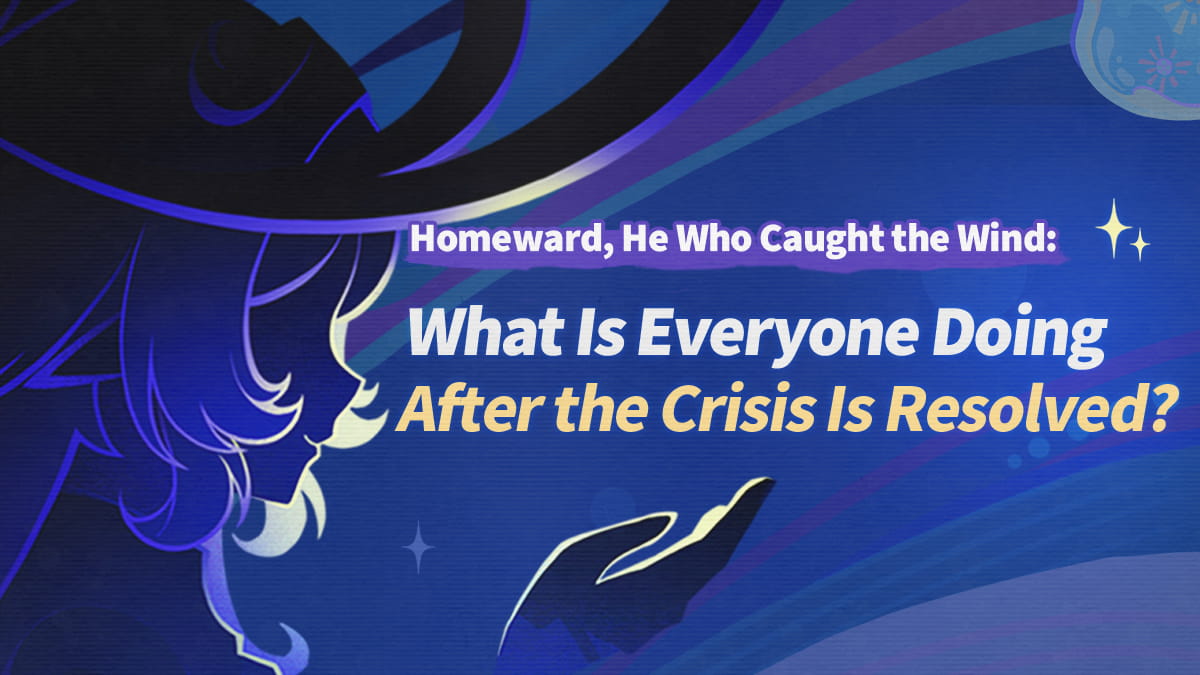
No turn of fate can change the character a person already carries. But sometimes, it can make the ending a little less tragic.
Read more on Cutscene Animation: "The Dragon-Slaying That Fate Set Aside" | Genshin Impact.
No turn of fate can change the character a person already carries. But sometimes, it can make the ending a little less tragic.

With the crisis in the bubbles resolved, the ceremony to welcome the expeditionary force home continues. Let’s see what everyone is up to!

The people’s yearning guide the way, bringing back that long-awaited north wind.

Hello, Travelers! Here’s the March 2026 calendar wallpapers (PC/Mobile/Apple Watch) for you~ Feel free to save and use them as you like~

As the winds of freedom stir, a special event meant to welcome a return slowly takes shape…

Fresh from his expedition, Grand Master Varka is hosting a Knights’ Trial at the Knights of Favonius to test the growth of the knights!
As a novice knight, give it your all in Varka’s trial!

Below are the details of the Version “Luna V” update “Song of the Welkin Moon: Variation — Homeward, He Who Caught the Wind” and the update compensation.

The Chronicled Wish “Ode to the Dawn Breeze” is coming your way soon! During this event, you will be able to get more weapons and characters. Let’s have a look~

Is it the spirit of chivalry that shapes a knight’s visage, or does the person who claims the mantle carve the likeness of their station?

Hello, Traveler~ Version “Luna V” “Homeward, He Who Caught the Wind” is coming! Let’s take a look at what kind of benefits and events will be in this new Version update~
